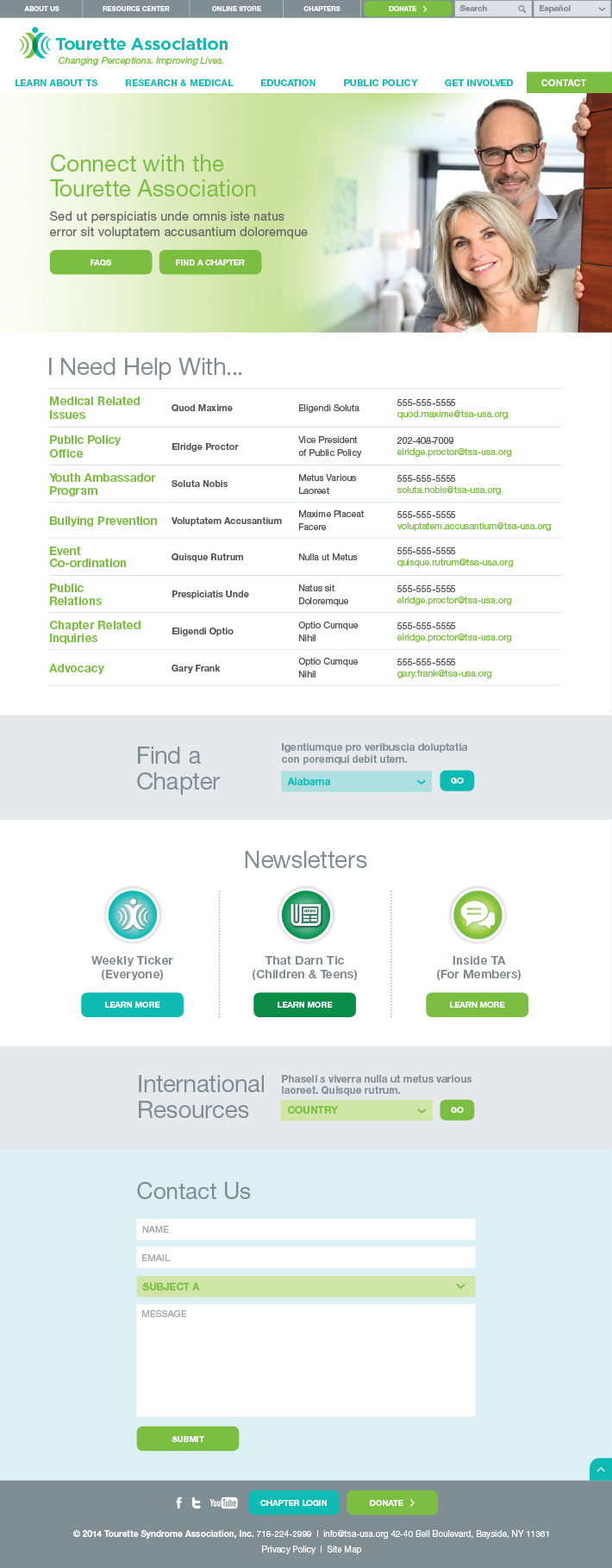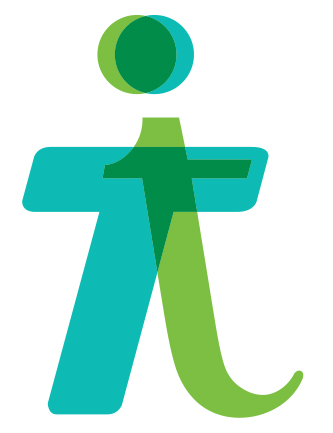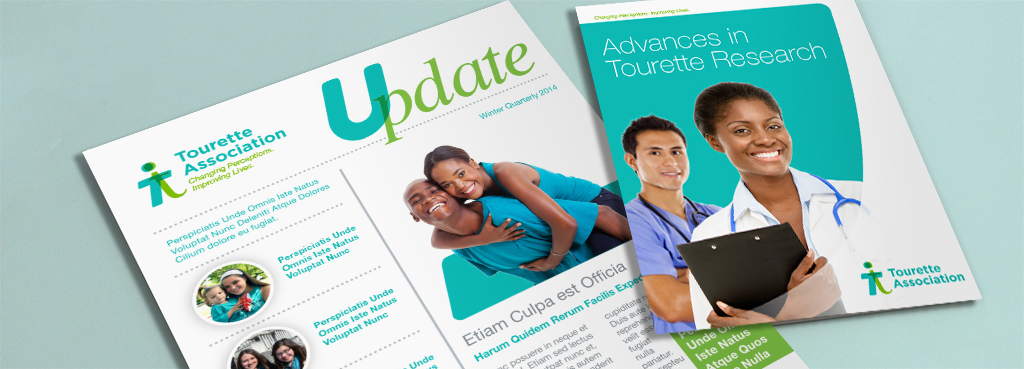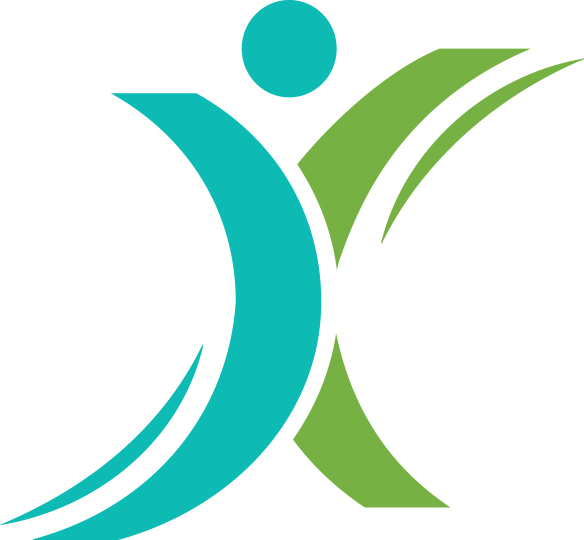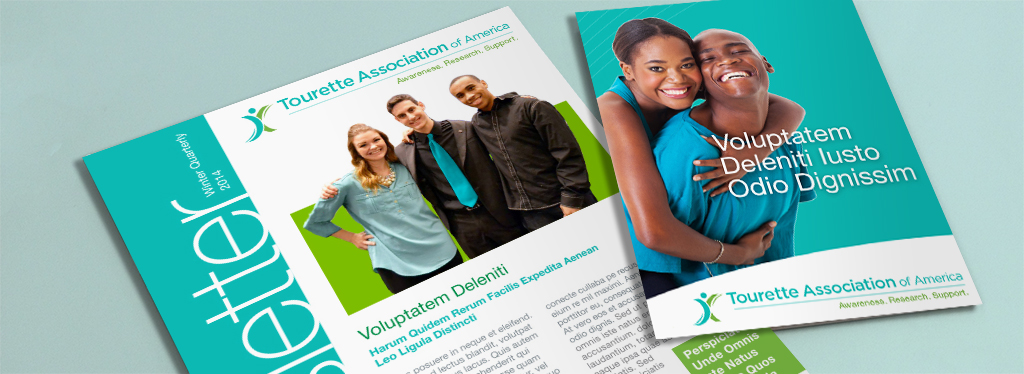Tourette Association of America
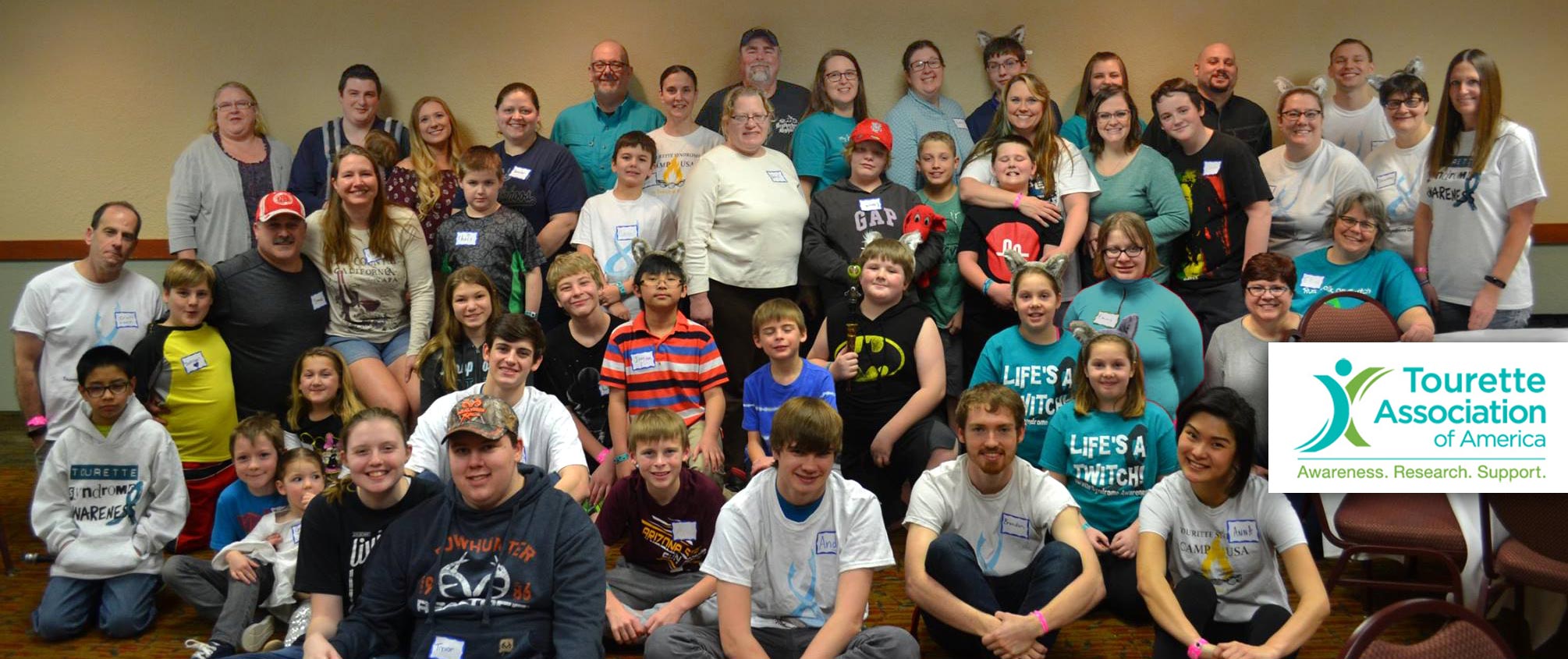
National Nonprofit Refreshes Its Focus, Name, Visual Identity & Website
Like many disease and disorder organizations, the Tourette Syndrome Association (TSA) wanted to increase public awareness in order to foster a greater acceptance of this condition. Red Rooster Group was called in to refresh the organization’s brand by refining its focus, evolving its name, updating its visual identity, and developing a new website.
Services
- Brand Analysis
- Website Assessment
- Competitive Review
- Stakeholder Interviews & Surveys
- Focus Groups & Brand Workshops
- Audience Needs Mapping
- Brand Positioning & Messaging
- Renaming
- Visual Identity System
- Brand Style Guide
- Website User Experience
- Website Copywriting
- Website Design
- Website Development & Integrations
Assessing the Needs
Founded in 1972, the Tourette Syndrome Association (TSA) is the only national nonprofit organization that helps individuals and their families deal with the many issues associated with Tourette Syndrome and tic disorders. With more than 30 chapters nationwide, its main mission is to increase awareness and knowledge about Tourette Syndrome while advocating for public policy issues, and investing in medical research to better understand this little-known but widespread condition.
TSA wanted to refresh its brand with a new logo and tagline in order to bring uniformity and consistency to the organization’s image and messaging, and do it in a way that thoughtfully transitions the organization from its historical look and feel toward a more hopeful, energetic, and professional identity.
Part of the project was also to simplify and reorganize the current website to help showcase the array of services that TSA offers, help users more easily find the information they need, and engage people in taking action and joining the community.
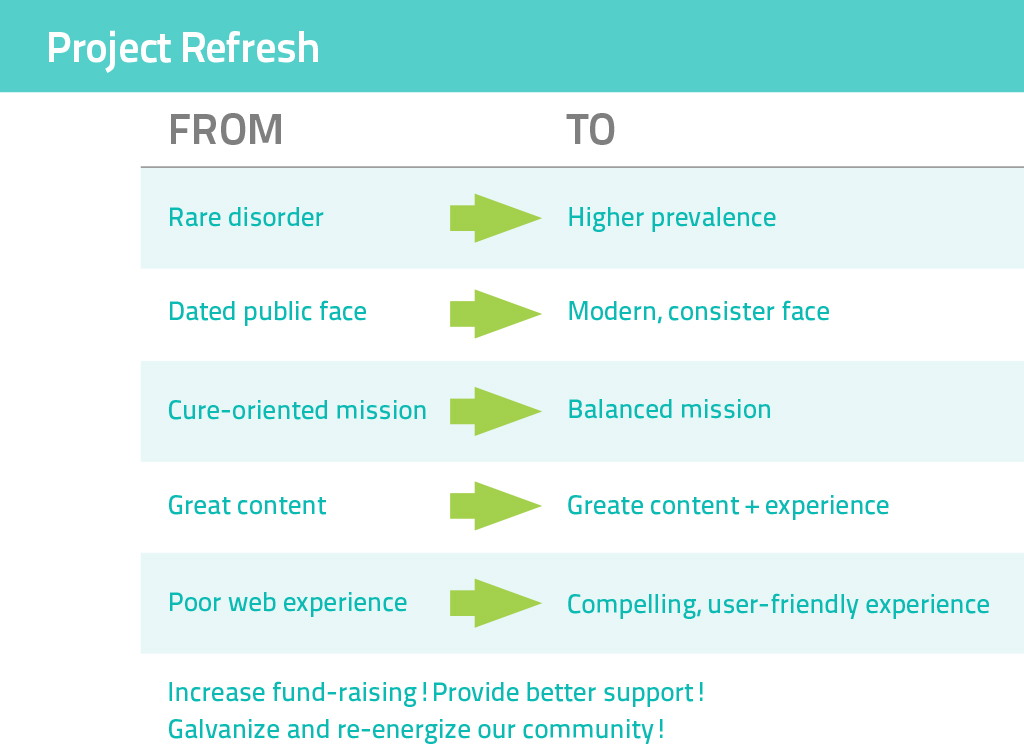
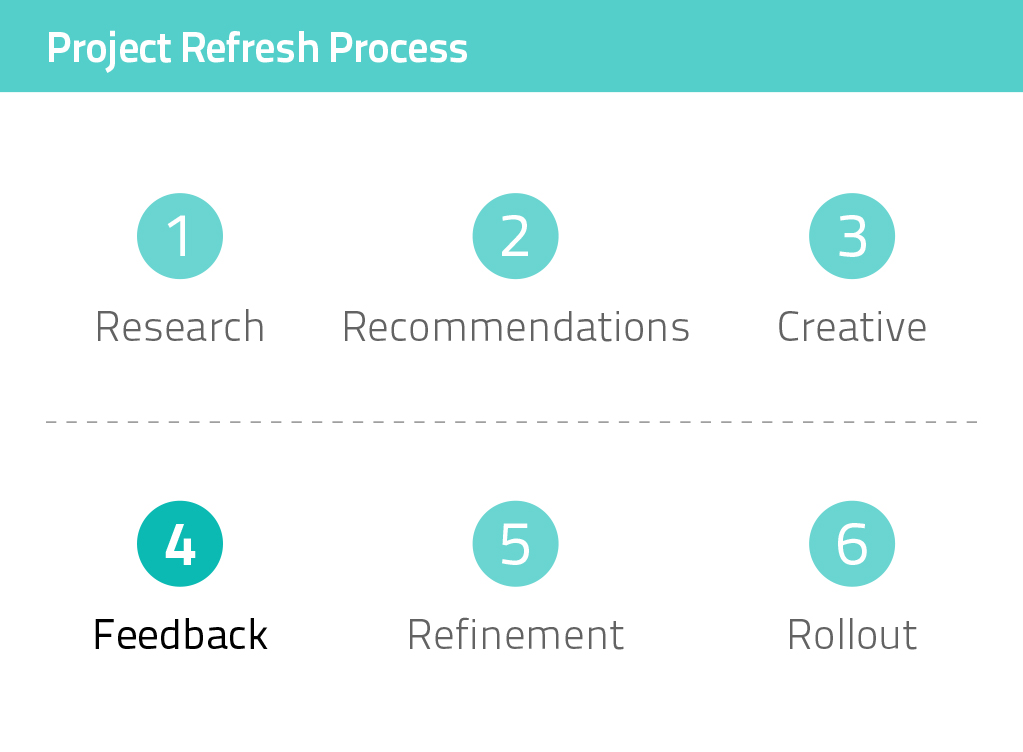
Discovery
To begin the project, we conducted research to provide us with key information for developing TSA’s brand. This included:
- Reviewing TSA’s internal and external documents and materials to learn more about the organization and the issues it addresses.
- Facilitating workshops with TSA staff and chapter heads to understand chapter needs and perspectives.
- Hosting a feedback table at TSA’s annual conference for in-person engagement.
- Conducting individual interviews with a range of constituents.
- Holding one-on-one discussions with TSA staff about each department’s needs.
- Conducting surveys with the TSA community, general public, and other groups.
Key Takeaways
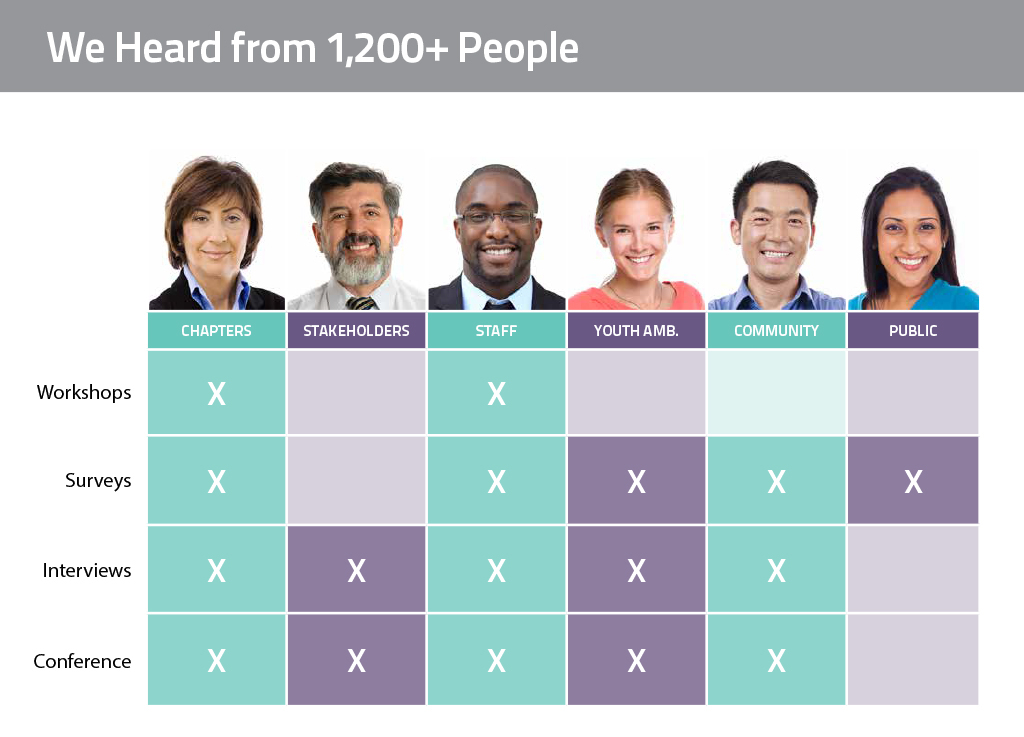
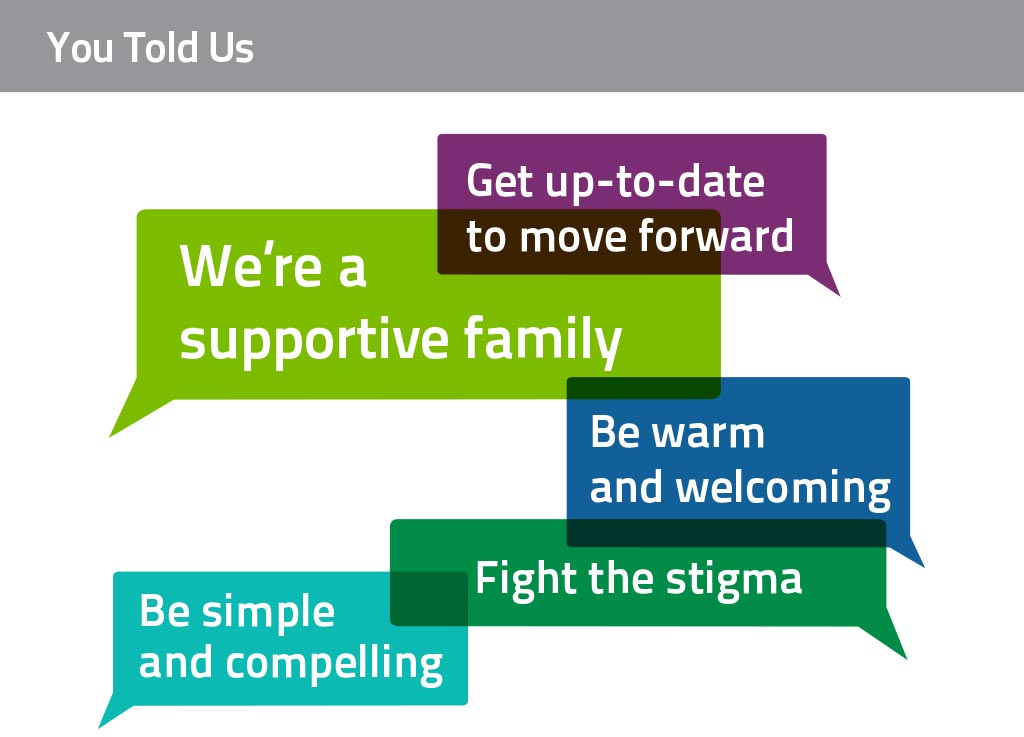
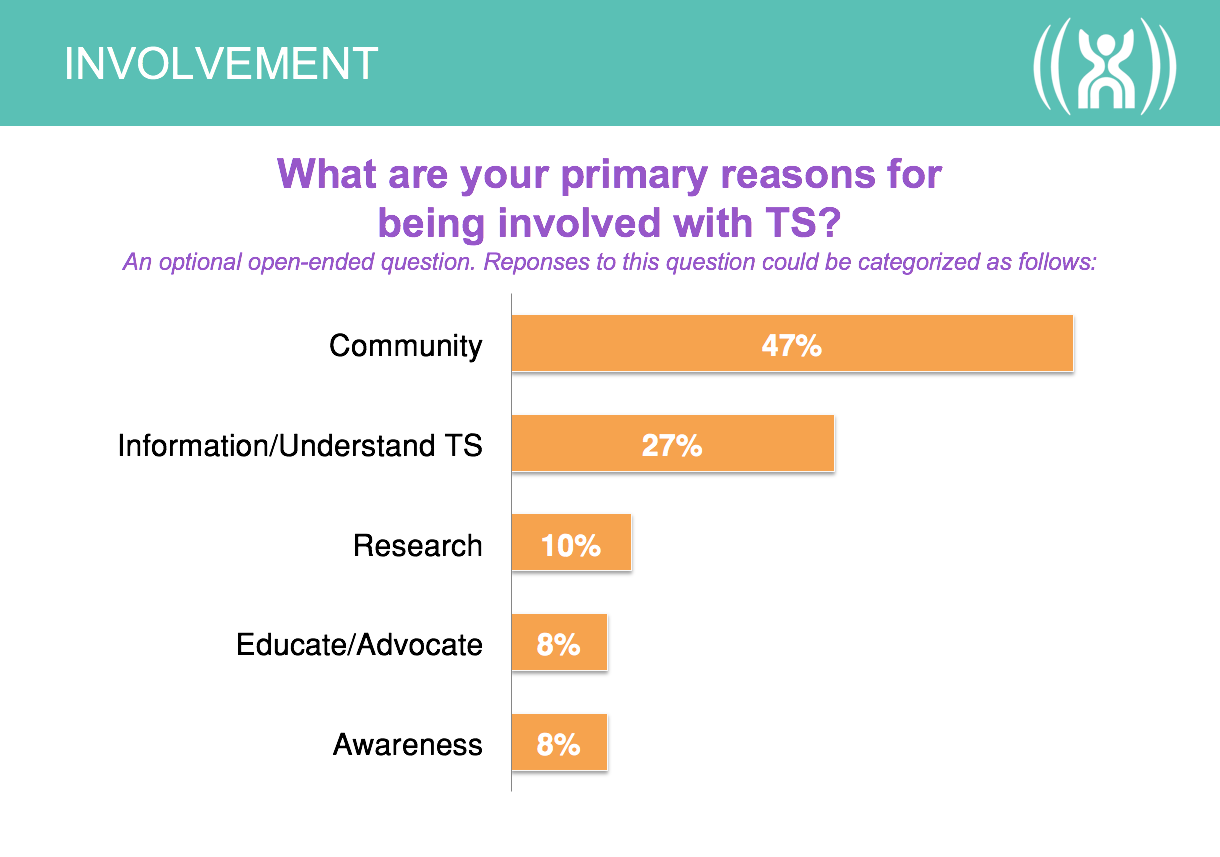
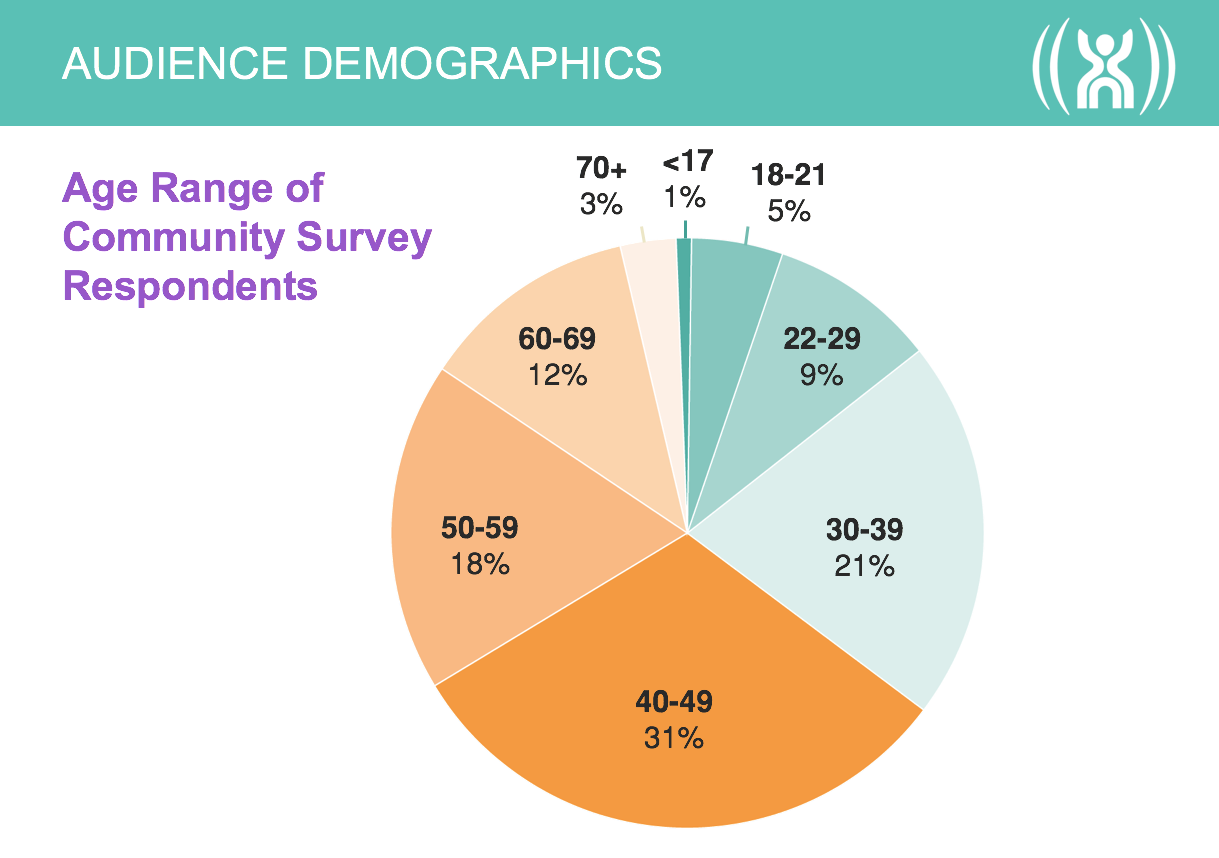
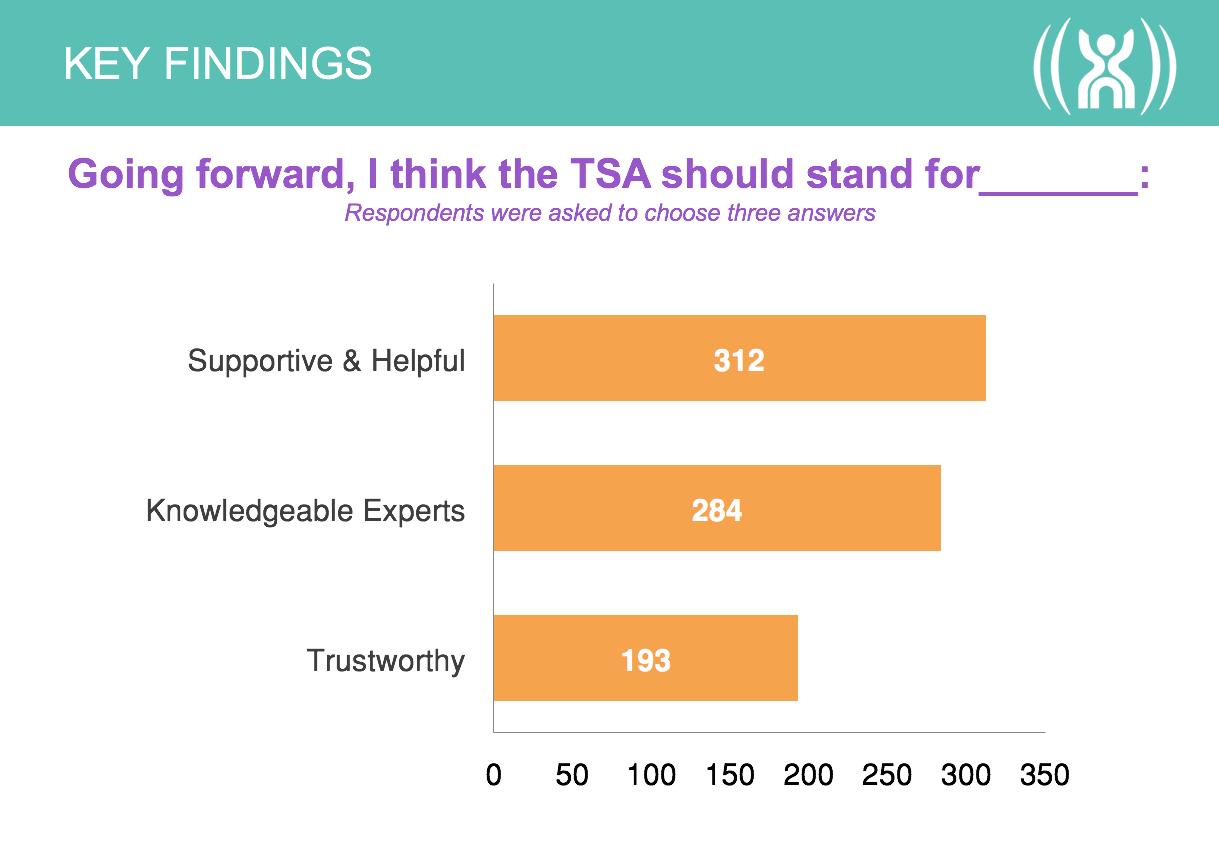
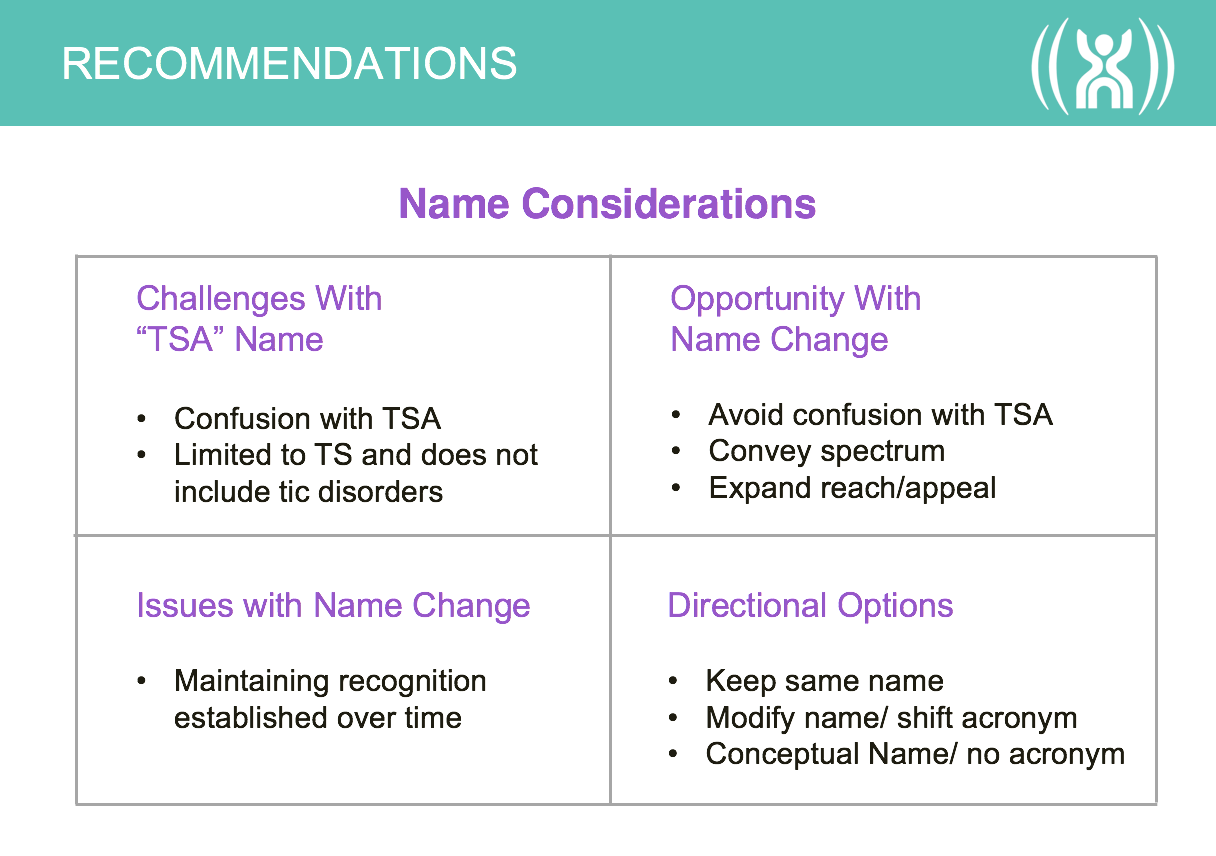
Defining the Message
Mission
Red Rooster Group worked with TSA to develop internal and external messages for the organization. A core part of the branding initiative was to update the organization’s Mission Statement to reflect its current focus. This included a shift in the outcomes of the medical research, being more positive and inclusive, and increasing the focus on awareness of Tourette Syndrome. We worked with organizational leadership to refine the language and get feedback from various constituents.
Mission Before
To identify the cause of, to control the effects of, and find a cure for Tourette Syndrome through education, research, and service.
Mission After
The Tourette Association is dedicated to making life better for all people affected by Tourette and Tic Disorders.
Refining the Name
Organizational Name
The branding process was the perfect opportunity to examine whether the organization’s name — Tourette Syndrome Association — should be changed in any way because the name was long, it was often shortened to TSA, and consequently confused with the Transportation Security Administration. The organization was exploring ways to improve the current name, rather than develop an entirely new name.
The main name considerations included:
- Whether the word ”Syndrome” should be dropped from the name. The word had medical significance, people with Tourette Syndrome identified themselves that way and, yet, to the general public and newly diagnosed, that word can make the disorder seem more scary. Since Tourette Syndrome is referred to as TS, how would dropping ”Syndrome” work using ”TS?”
- Whether there would be any designation of a national presence in the name. The organization is both national and international in scope and wants to be recognized as distinct from the chapters. Yet, adding another word would lengthen the name and increase the likelihood of abbreviation.
- If the name is shortened to Tourette Association, whether or not to use an apostrophe on Tourette’s. Formally, an apostrophe is used, but how would that complicate the name and URL?
Iterations of the name were presented and discussed with leadership. We then tested the reaction of the Tourette community to the naming options in focus groups, eliciting feedback that helped shape the decision to use Tourette Association.
Before

After
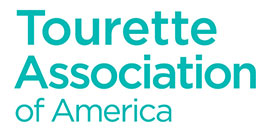
Revitalizing the Visual Identity
Recognizing Brand Equity
A major component of this branding initiative was to update TSA’s logo, which had been in use for decades. While people had an affinity for the symbol due to familiarity, feedback from surveys told us that while people liked the sense of movement, they thought the logo looked dated and that the figure looked isolated and trapped.
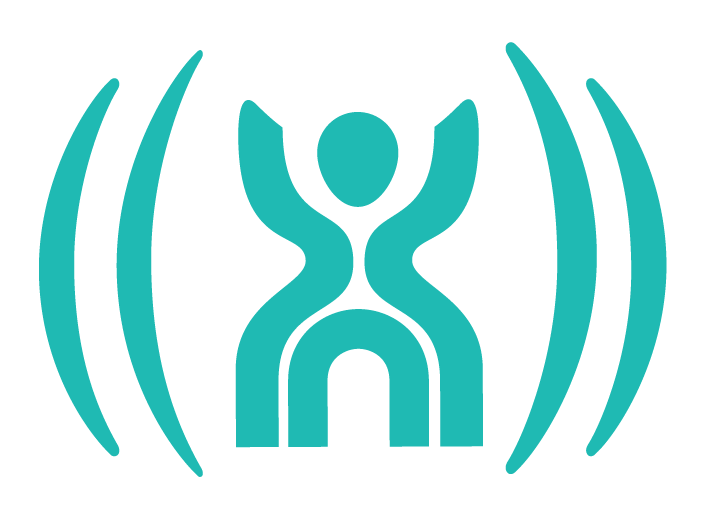
Exploring Concepts
Our goals with the redesign were to update the symbol to be more dynamic, with a sense of energy and a suggestion of the positive aspect of living with TS successfully, rather than feeling inhibited by it. We explored a wide range of graphic expressions that could showcase the organization, while being sensitive to not misrepresenting Tourette Syndrome. These concepts included abstract symbols, representation of motion, community, figurative icons, and other concepts.
Logo Testing in Focus Groups
The two final logos, as well as the shortened organizational name and the tagline, were tested in focus groups with TSA’s community in various cities. The feedback helped us gauge how people with Tourette Syndrome would feel about changes to the organizational brand as well as giving us specific feedback on each brand element. As a result of this feedback, we further refined one of the logos.
Logo Testing in Internal and External Surveys
To understand how people who were not familiar with Tourette Syndrome would perceive the logo and tagline, we conducted a survey of the general public. The following logos were tested, using the existing logo as a baseline. Option B was the winner.
A
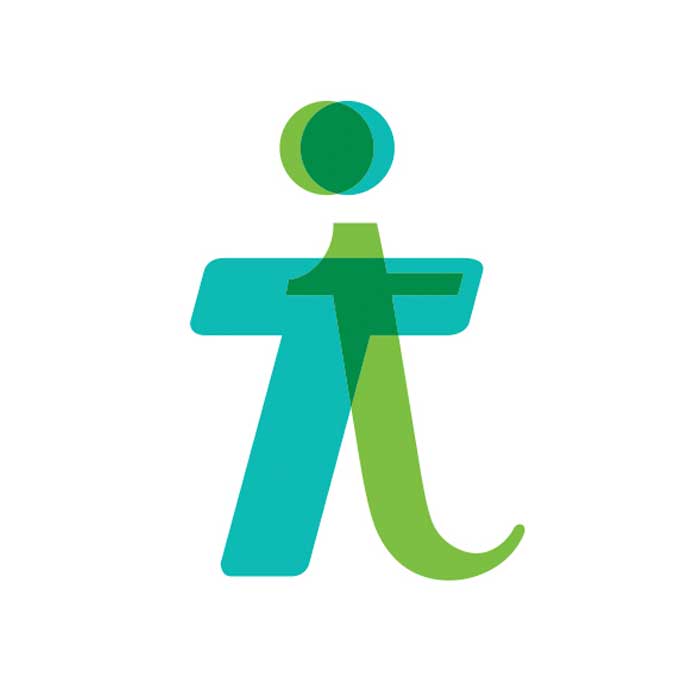
B
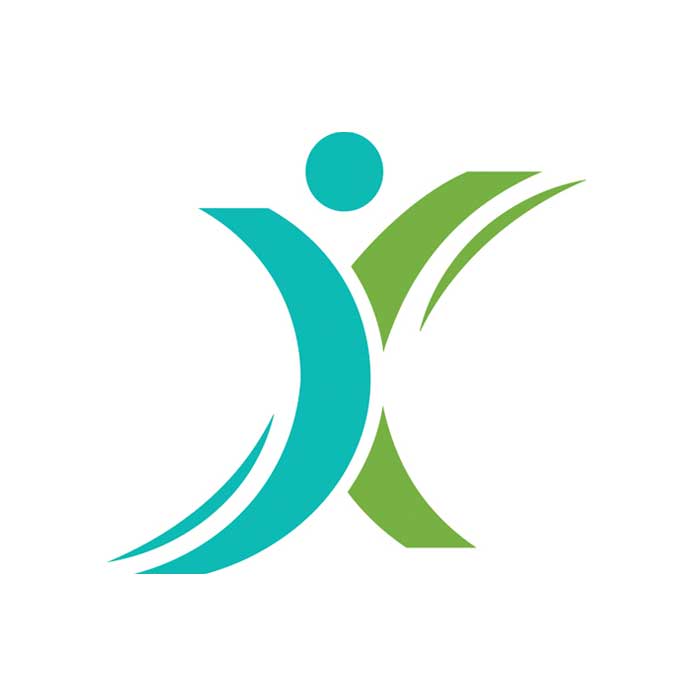
C
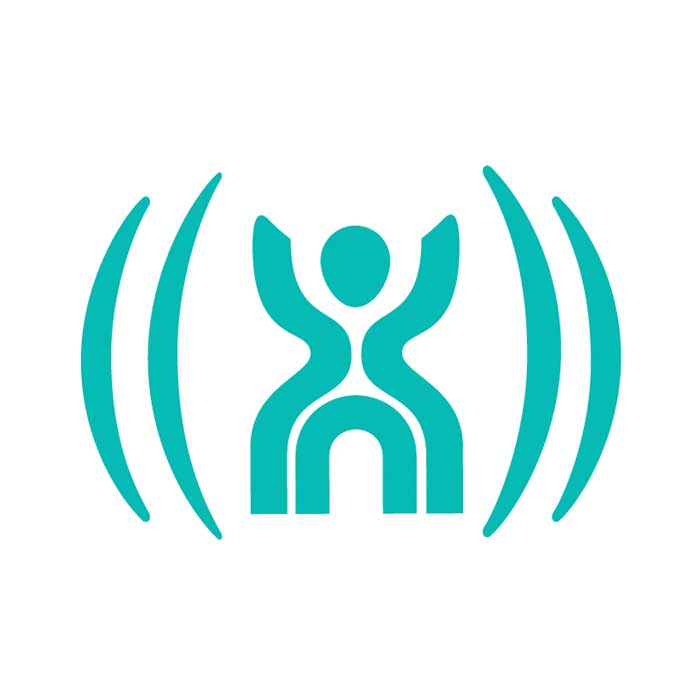
Presentations for Internal Buy-In
During the course of the engagement, TSA leadership solicited input from various internal stakeholders, such as a leadership advisory team, the board, and a chapter council. Red Rooster Group created presentations showing the evolution of the brand elements so that the President could successfully pave the way for organizational changes by allowing input while addressing resistance to change and concerns about any of the brand elements.
Creating a New Website
Creating a Content Strategy
The site contained a massive amount of information but was very difficult to navigate. We cataloged the content from more than 1,000 pages and reorganized huge amounts of information so various audiences have a clear path to what they need. In addition to pages written for specific audiences, the site contains a searchable Resource Center to access a variety of media resources.
Developing a Modular Content System
The site is designed to be completely responsive for mobile, tablet, and desktop users, and has a robust administration area in the WordPress CMS to make it easy for staff to update. The unique modular block system we developed provides the ability to create interesting pages easily. Red Rooster Group handled the entire website development process including site architecture, copywriting, wireframing, design, development, and final testing.
Before
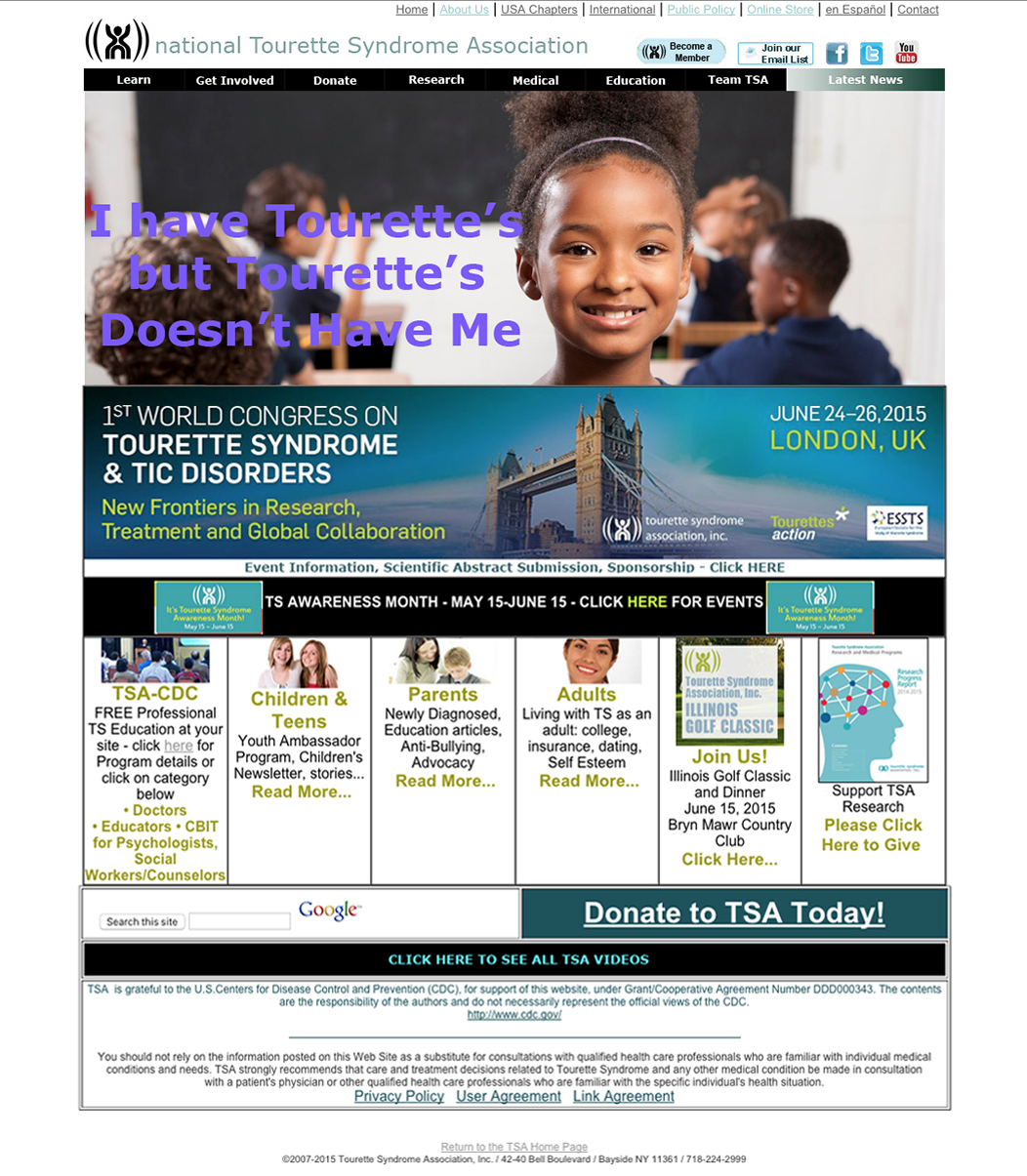
Rotator provides a quick overview of the organization.
Quick access to relevant content for key audiences.
The Did You Know feature appears on different pages with different facts.
Get Involved and Take Action modules encourage user engagement.
After
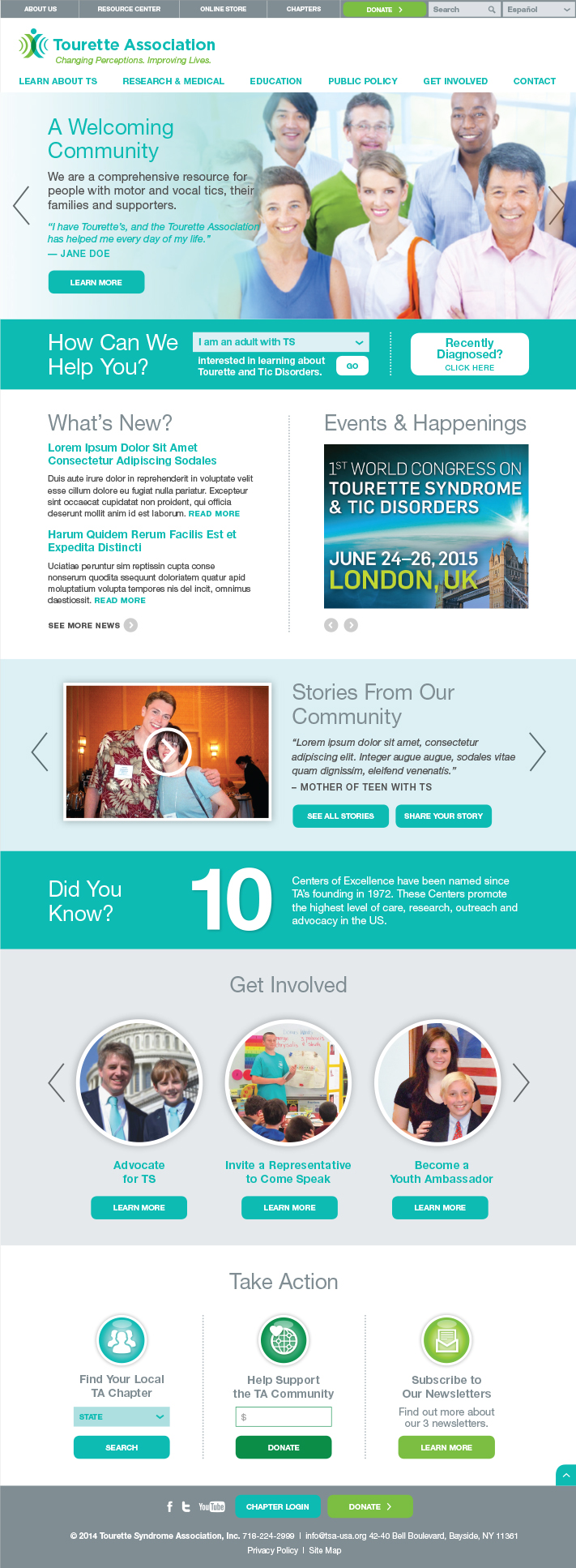
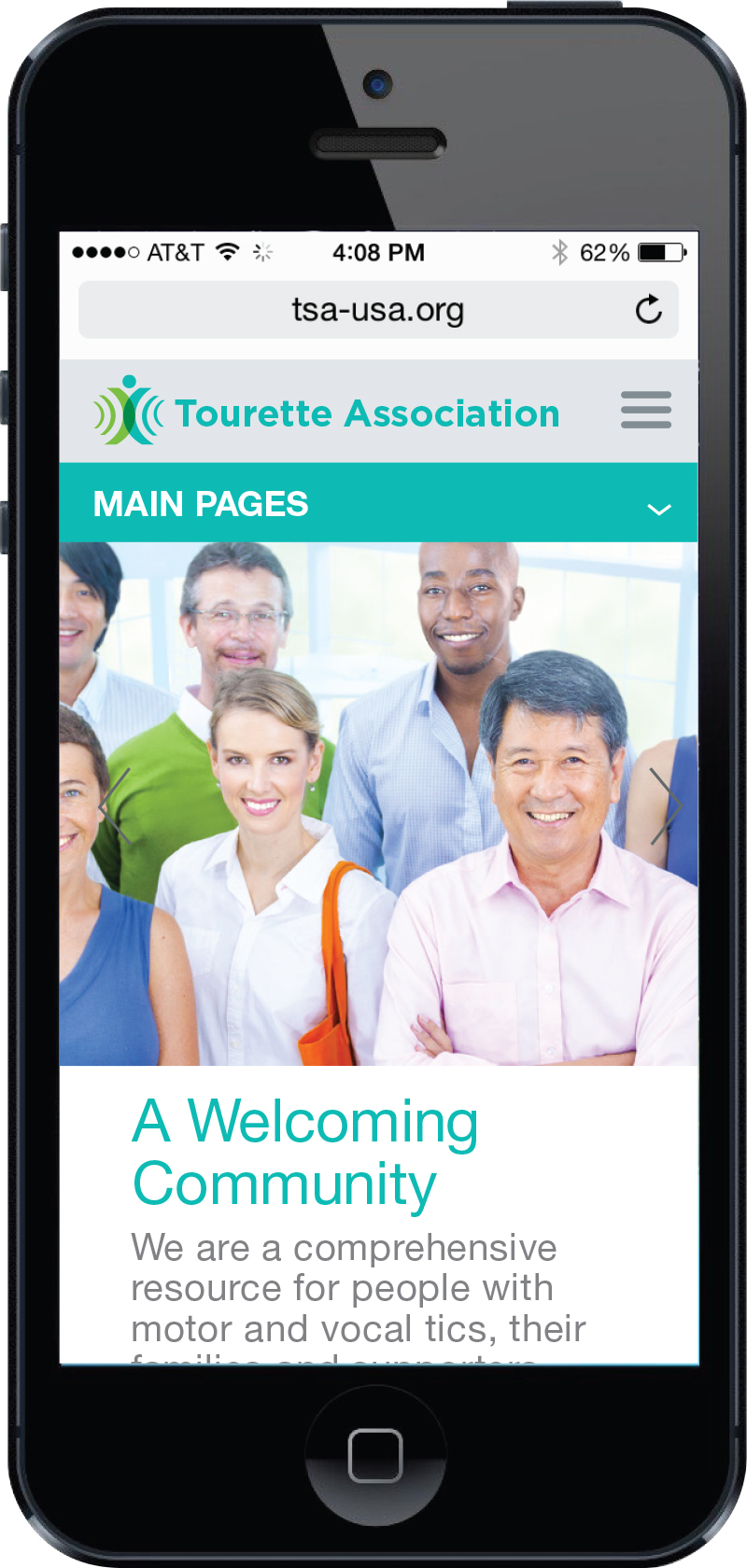
The website is fully responsive for viewing on tablets and other mobile devices.
What is TS?
This subpage is used to provide information for those new to Tourette Syndrome.
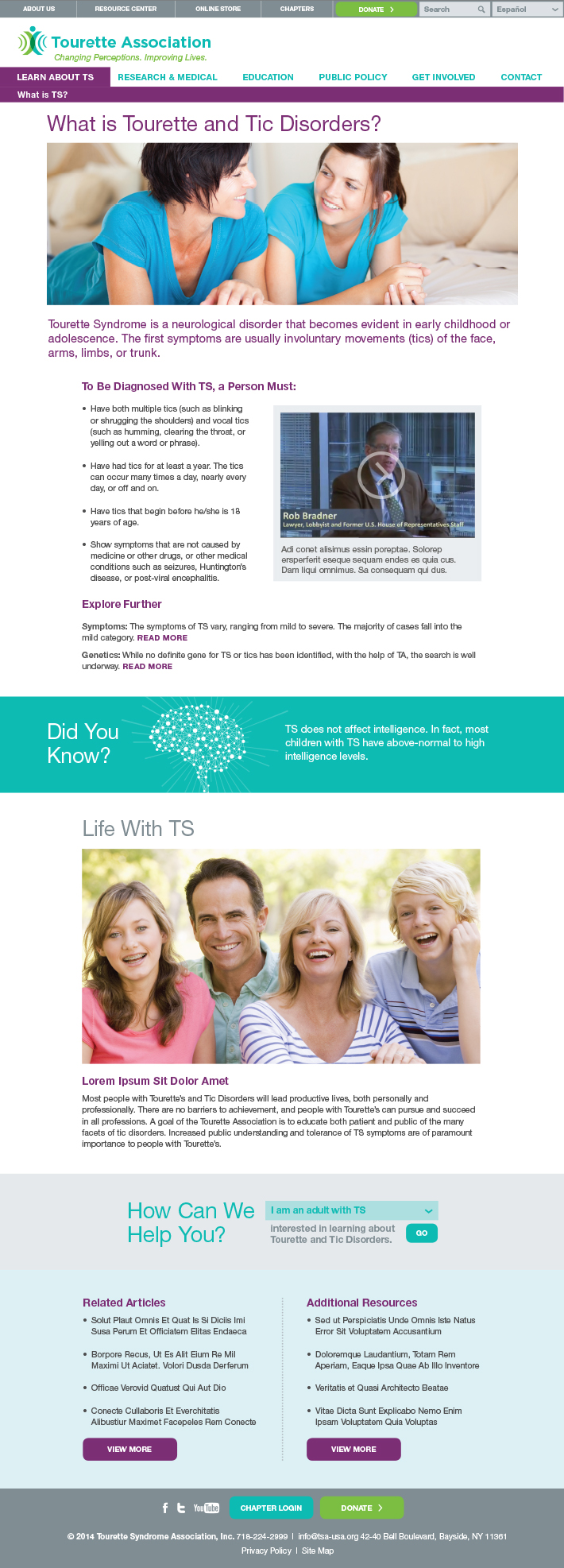
Learn About
Main section pages were designed to engage users and allow easy navigation to audience-specific resources.
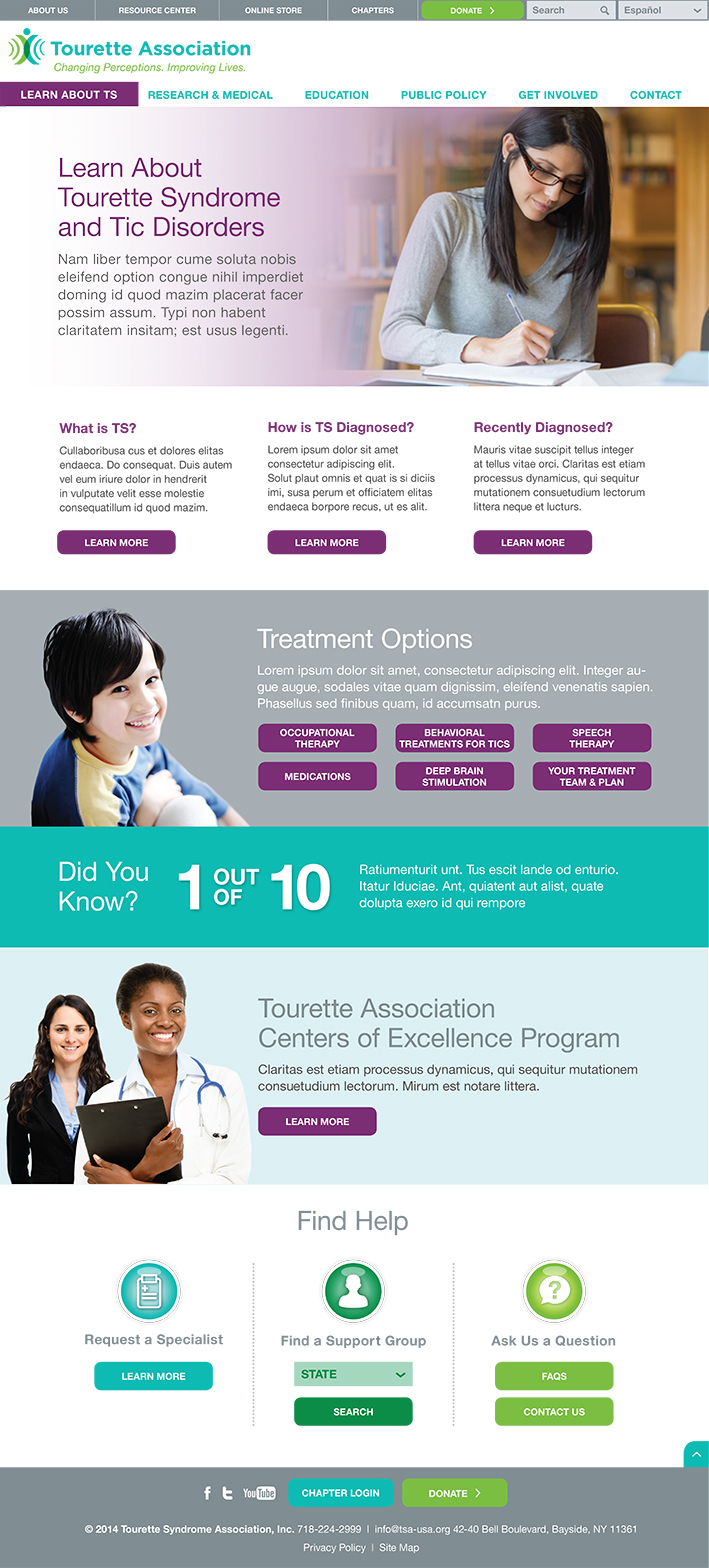
Color-coded header modules for each section welcome users and help them acclimate to the section.
Three-column format provides choices for users without overwhelming them.
This module allows an image and multiple buttons.
Certain modules allow set content to appear on different pages throughout the site.
Action modules are present throughout the site to encourage interaction and provide help to site visitors.
Blocks of volunteer opportunities showcase the many ways users can donate
their time.
This page offers quick links to other ways users can support the organization.
Event modules allow users to sign up and get involved with events in their area.
Get Involved
Tourette Association offers a variety of ways in which users can get involved with the organization.
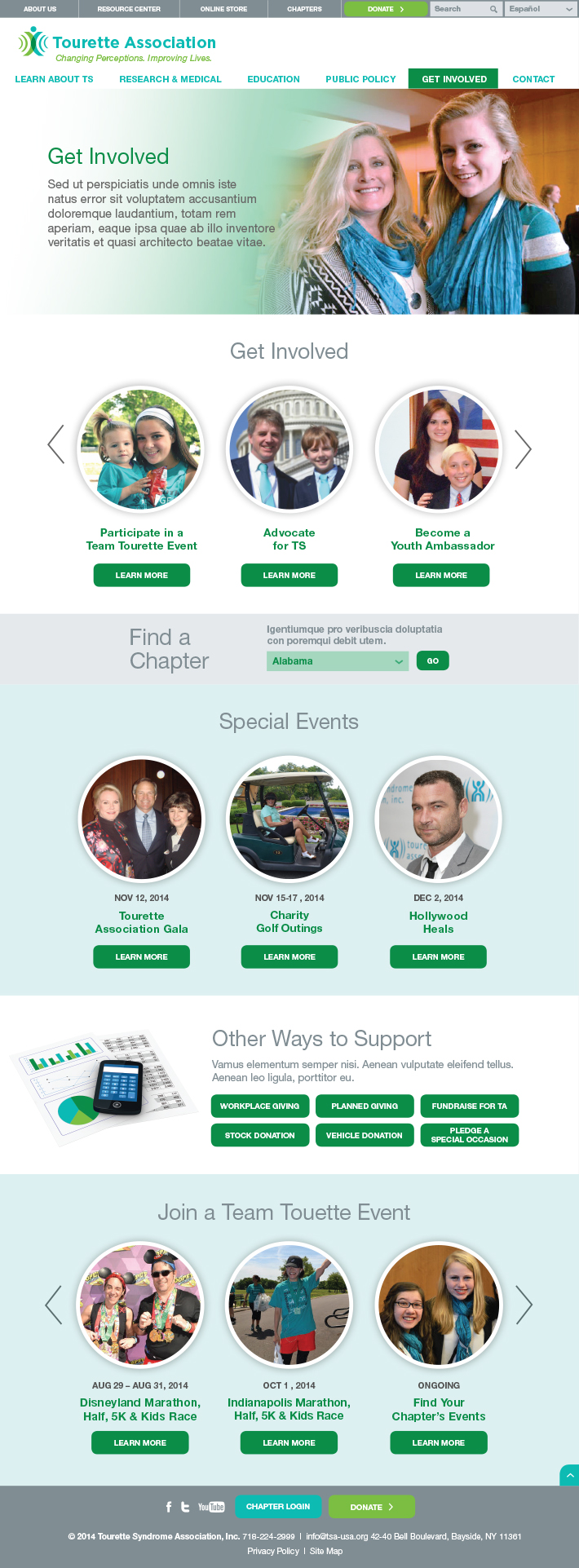
Teens with TS
Teenagers with TS face particular challenges so we created a page with information written specifically for them.
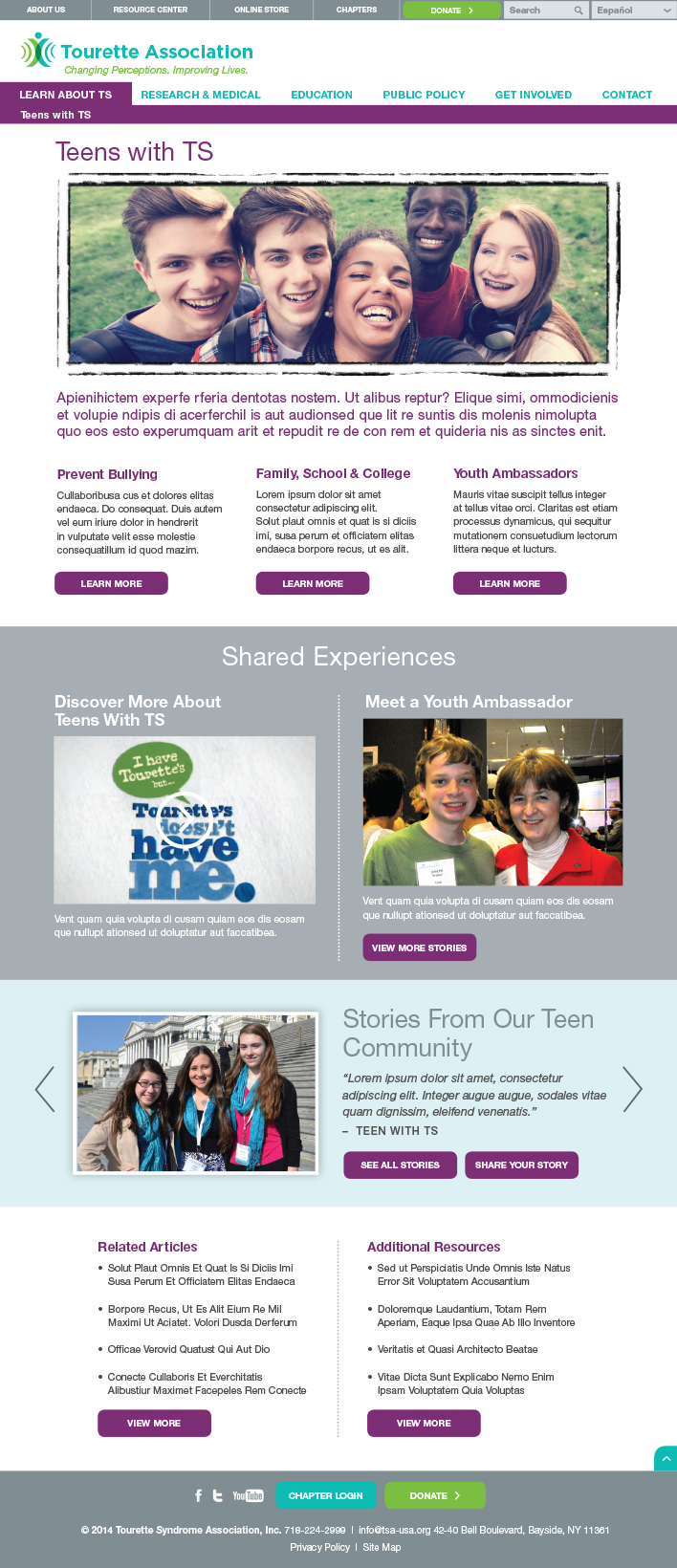
TS Awareness Main Page
Easy access is provided to publications, ads, audio lectures, and other resources.
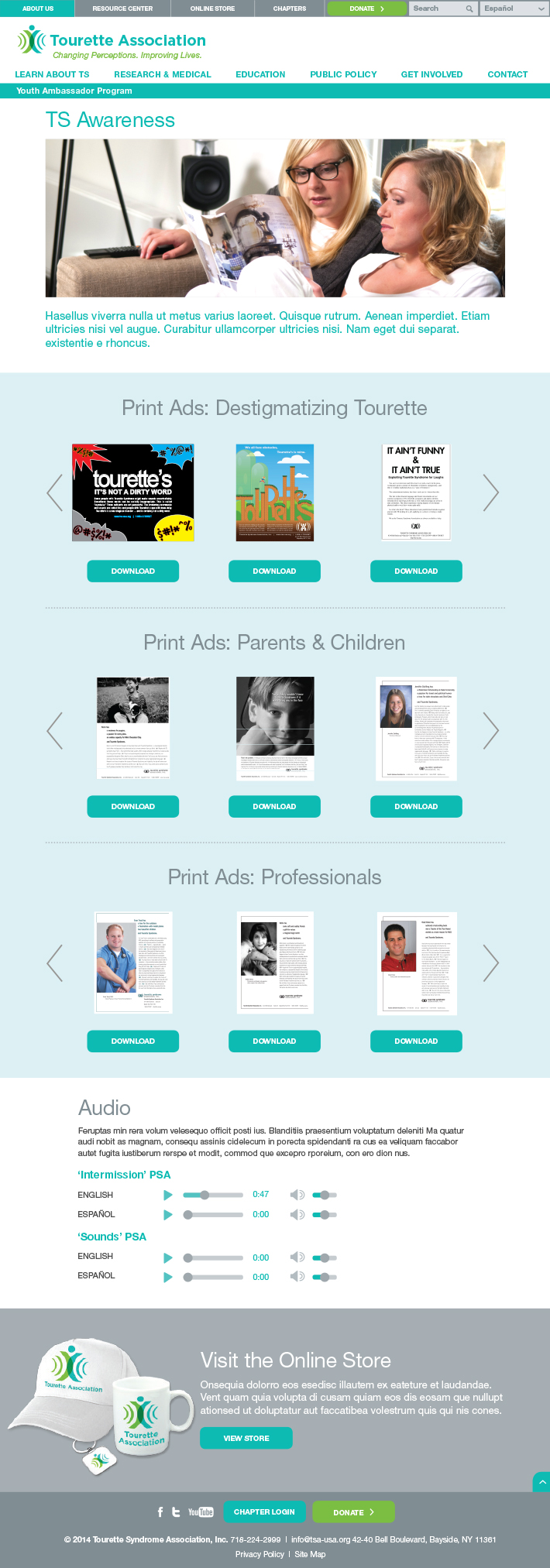
Advocacy Main Page
The site presents quick and easy ways to support and advocate for the Tourette Association’s issues.
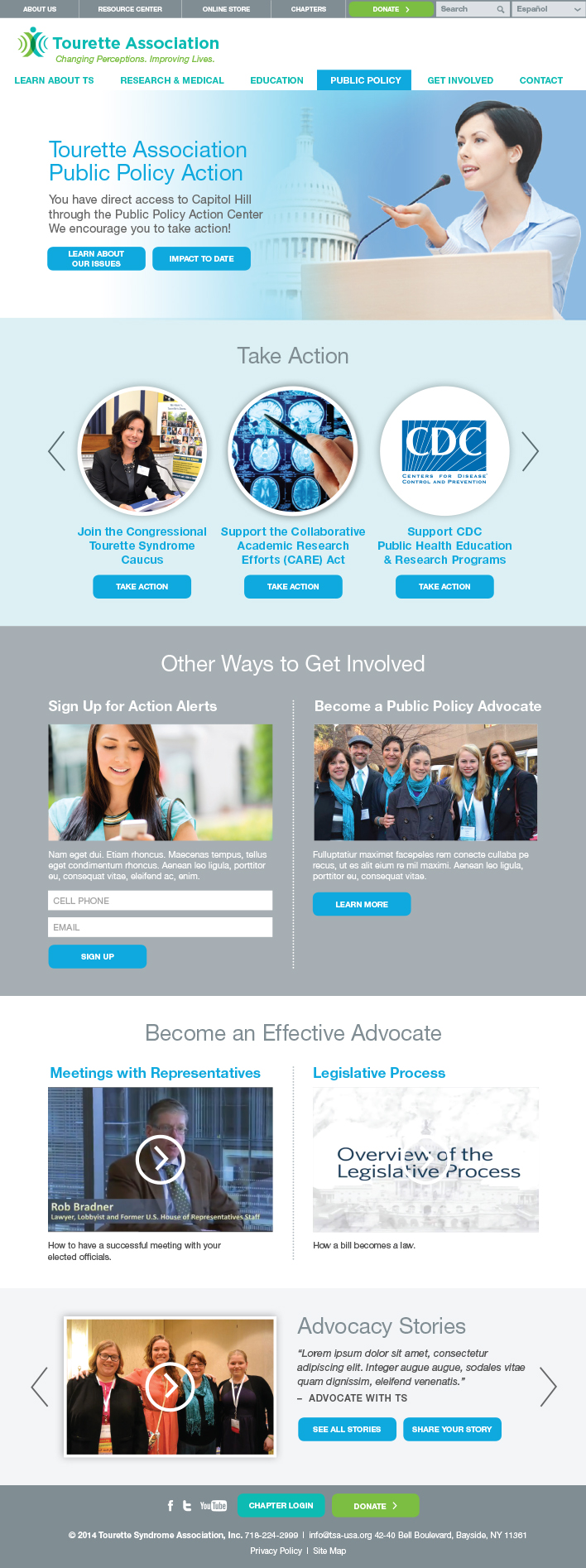
Integration with advocacy software allows users to engage with and take action on current issues.
Action items to engage users are embedded throughout the site.
A specialized search functions allows users to filter and sort thousands of resources.
Quick link sections provide easy access to content.
Resource Center
By aggregating years of past publications, articles, videos and slide shows, the Resource Center allows users to quickly and easily search for reference materials that meet their needs and answer their questions.
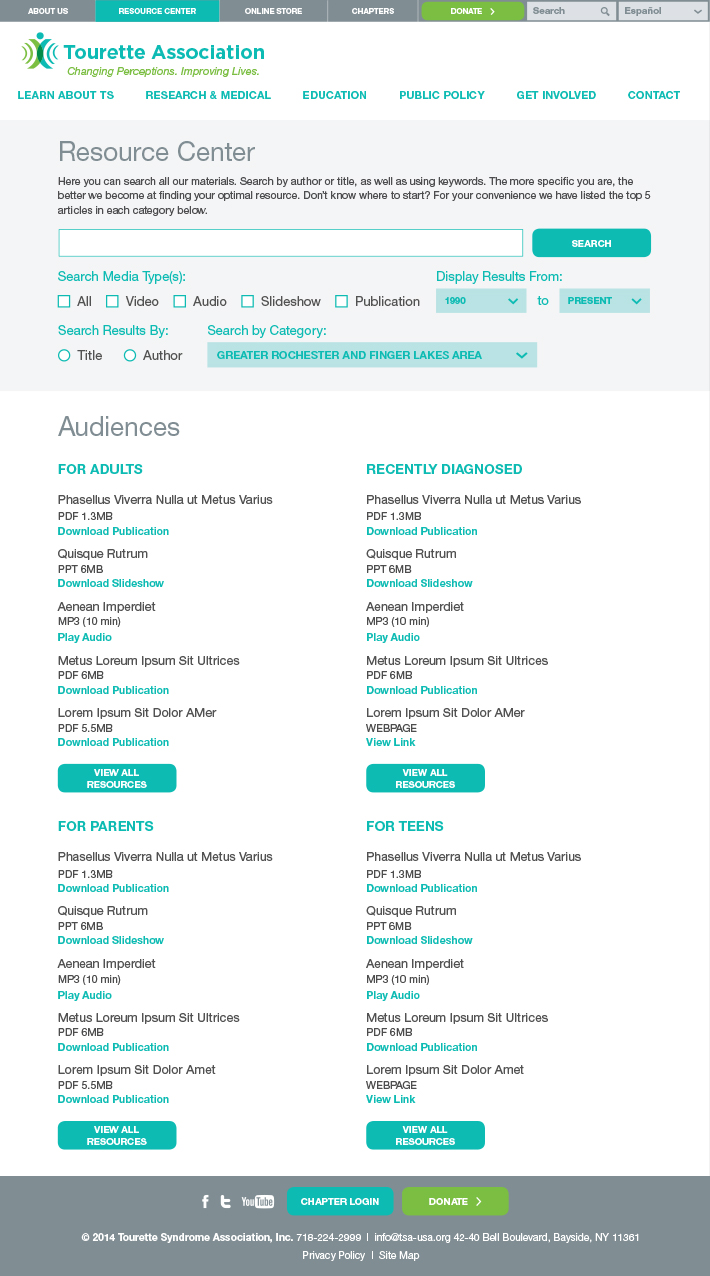
Connect with TA Main Page
With contact information, newsletters, and feedback forms built right into the site, the Tourette Association welcomes all who come to it for information, assistance, or even some friendly advice.
